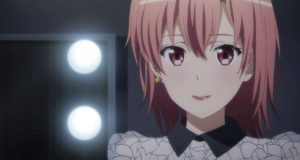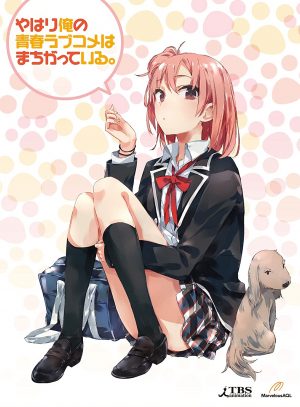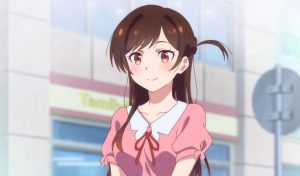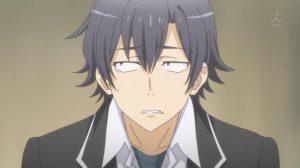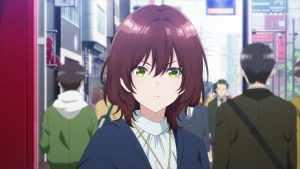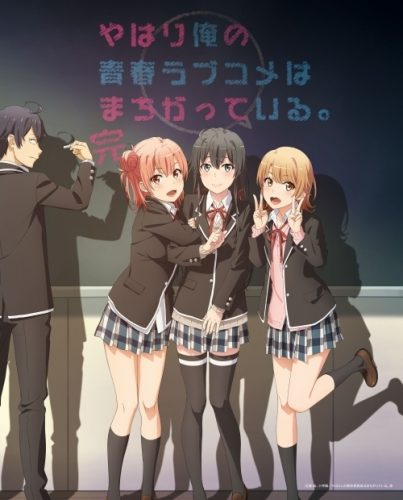
"My Teenage Romantic Comedy Ended, Did I Expect It?"
The past week has been important for this season as several shows are wrapping up their respective cours, while others are wrapping up for good. Oregairu is one show that came, saw, and conquered as it was highly anticipated given the huge five-year gap between the second and the third and final seasons of the show. Oregairu is one of those shows that we should look back on fondly for the drama, cynicism, teen angst, and of course, for its resolution! We love a show that ends strongly; however, was it always going to end this way?
It’s About Archetypes!
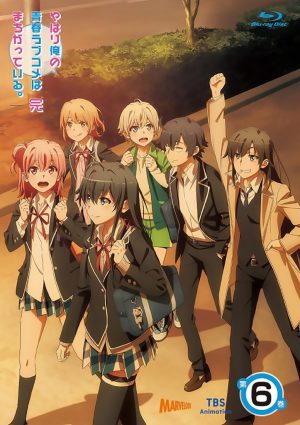
Oregairu is a slice of life anime that holds true to that aspect of its identity right down to characterization. There are certain tropes and sometimes a formula to certain types of anime coming from and speaking to a particular genre and in the case of Oregairu, which consistently hinted and pointed at romance between the main characters.
These angsty, “will they, won’t they” situations are part and parcel of the romantic slice of life anime experience; however, Oregairu’s love-triangle seemed to exacerbate this dynamic as Hachiman, Yui and Yukino’s relationship deepened. Back to archetypes – what about the subtextual dynamics between the characters may have hinted towards some of the events in the latest season?
Hachiman – ”Who Hurt You?” King/Cynical Protagonist
Hachiman’s protagonist role in Oregairu is quite obvious, the full title of the series is something that he has mumbled to himself in his cynicism about relationships in general. His entire personality and withdrawal stem from a bad social experience he had with a female classmate with whom he had been acquainted. Becoming an outcast at school made Hachiman prone to understanding various social dynamics in the people around him in a rather cynical light. Hachiman bears the striking “dead eyes” that is a recurring visual theme amongst (cynical) male slice of life protagonists.
Be that as it may, Hachiman’s relationship with Yukino and Yui eventually leads him to deciding for himself that he wants something “real”. The truth is, he wants all the things he makes fun of so much but his social ineptitude and overall withdrawal from the foreground of social life hinder him, until his fated meeting with Yukino and Yui. Hachiman’s development as a character hinges on his terrible attitude towards anything, especially towards himself. As other characters grow closer to and fonder of Hachiman, his self-sacrificial acts of service become less and less seen as an acceptable end to any problem.
Yukino – Ice Queen/True Romantic Interest
The famous Yukinoshita Yukino played the role of the ice queen well from start to finish. Yukino is also a big softie who happens to be so good at pretty much everything that other characters seem to forget that she’s human too. Yukino’s kept-together character and wit are rarely shaken unless when the assailants are her mother and her sister, two individuals who are incredibly gifted at the art of manipulation, but also seem to know just how to render Yukino absolutely powerless. Yukino’s greatest internal conflict lies in the zone where her ice queen façade falls away completely – when her mother and sister have something to say. The general feeling of powerlessness pervades Yukino’s life, so she really wants to do something well by herself, with her own power and agency.
As the ice queen, the subtext in a romantic slice of life often creates romantic tension between her (the ice queen) and the cynical protagonist; however, Yukinoshita Yukino’s newly-defined relationship with Hachiman continues a long string (haha) of long-haired female slice of life anime characters either developing into the romantic interest of the sardonic male protagonist; or being introduced as the love interest from the jump. This is important because it means that based on character aesthetic alone, we could’ve had a fairly good prediction of where the “love-triangle” would end up.
Yui – Ray of Sunshine/False Romantic Interest
In the final season of Oregairu, Yui’s role as the vivre of the Volunteer Service Club was turned on its head as we saw her in tears on several occasions this season. As the “dummy” romantic interest, her relationship with Hachiman follows a pattern we’ve seen before many times; however, Yui’s realises that her feelings will never be returned. The third-wheeling of Yuigahama Yui speaks to more than just the events of Oregairu, but also to the tendency of anime of this genre to create a vibrant, interesting friendship between characters in Yui’s position and the series protagonist; one that is also never really meant to morph into something romantic but very well could have.
Yui’s internal conflict related to her easy-going nature and by extension, her fear of truly speaking her mind or expressing her feelings. The final season was the culmination of our main characters’ efforts to become better versions of themselves and with Yui, her drawn-out but determined attempts to spend more time alone with Hachiman and eventually confess her latent romantic feelings for him. However, Yui was always going to be the third wheel, the losing end of the love-triangle. This dynamic among characters is so often observed in shows like Oregairu, where the happy-go-lucky (and short-haired, where applicable) love interest experiences a love that is unrequited, but there’s never any hard feelings when everything is said and done.
Final Thoughts
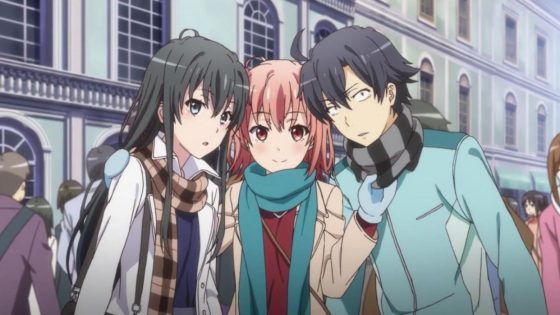
Oregairu has been a beautiful rollercoaster of a journey and fans have themselves grown up a little bit in the time that the series ran. We laughed, cringed and cried with these characters and seeing how the ending was more than just satisfactory – it tied all loose ends and that hollow feeling that one experiences at the end of a good series was hand-in-hand with a very clear happiness for the characters that we’ve come to love. Anime or not, maybe this left us with something. Something real.


